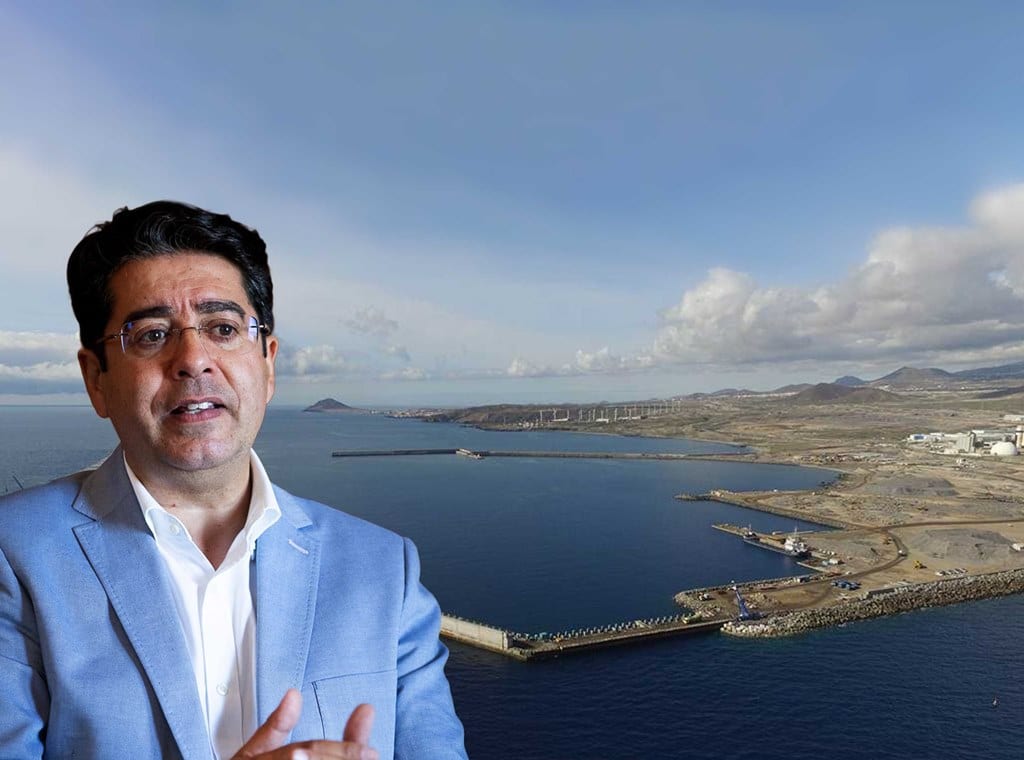
Locating a floating regasification plant in Tenerife, next to the industrial port of Granadilla, is a “good alternative” to reduce the costs of energy generation and atmospheric pollution while waiting for the development of renewable energies to be consolidated.
That’s what the president thinks Council of Tenerife, Peter Martin. Such an idea is endorsed by the royal decree law approved this week to mitigate the economic blow of the invasion of Ukraine by Russia, whose fourth final provision liberalizes the installation of regasification plants in the Canary Islands, which the regional government had renounced. “On Tenerife we have one of the power plants that pollutes the most in Europe”, Martín outlined yesterday in statements to the media. “Therefore, the possibility of introducing gas through a regasification plant to supply energy and be able to generate less polluting and much cheaper energy is an advance.”
From that perspective, he believes that the central government’s proposal is in line with seeking transitional energy”. It is not, he points out, an approach to the future. “In the Cabildo de Tenerife we are working decisively for renewables”, he transferred to Televisión Española. “And we have set up an office to promote projects on the Island. We cannot continue polluting, with one of the most expensive electrical procedures that is probably known in this country.” Consequently, he believes that the tagline introduced by the Council of Ministers “is on the right track”; being, in addition, an infrastructure “easily removable, a floating platform that could be moved out of here at any time.” The Port Authority agrees on this.
Floating regasification plant in Tenerife
During an interview given to Canary Island, Pedro Martín commented that the aforementioned royal decree law illuminates a “new stage” that is “realistic” to face a “very complicated situation” due to the high cost of energy prices. Installation of a regasification plant has been “awaited for many years,” he added, to reduce pollution “drastically.” It has been “wasting time and polluting a lot,” he added.
The gas “would be good for ships”, because, from 2025, all ports must be prepared to offer this fuel, and it would be used to generate energy in combined cycle plants. Currently, “only fuel is used, which is more expensive and polluting,” he argued. “It can last for years,” she added, until green hydrogen becomes available. As much as “they want to run”, she argued, the increase in production of renewables “will take time”. The also general secretary of the PSOE in Tenerife, recently re-elected, disfigures the “lurches” in energy policy and emphasizes that his position “always” has been “the same”.
Among the groups of the insular corporation, Pedro Martín has received one of sand and another of lime. While CC blesses this “opportunity”, Sí Podemos says no. The spokesman for the Nationalist Group, Carlos Alonso, understands that gas would lower the costs of generating electricity in its combined cycles: “In Tenerife there is a lot of debate about it and little action, and in Gran Canaria they are already with the project authorized for the supply and production of electricity. If Tenerife does not have a regasification plant, it will lose competitiveness, because the ships will go to Puerto de la Luz to be supplied”.
On the other hand, his necessary collaborators in the investiture, Sí Podemos Canarias, criticize Martín for “celebrating” the authorization of these facilities, ruling out the possibility of supporting a floating regasification plant in Tenerife: “It is a polluting fossil fuel with many extraction problems and a resource whose days are numbered”.
On Thursday, Martín’s counterpart from Gran Canaria flew into a rage. “This institution will be forcefully against anyone who tries to impose gas as an energy model,” said Antonio Morales (NC). In Gáldar, the regional councilor for Ecological Transition, José Antonio Valbuena, warned: “There will not be a meter of gas outside the power plants or the ports.”
















